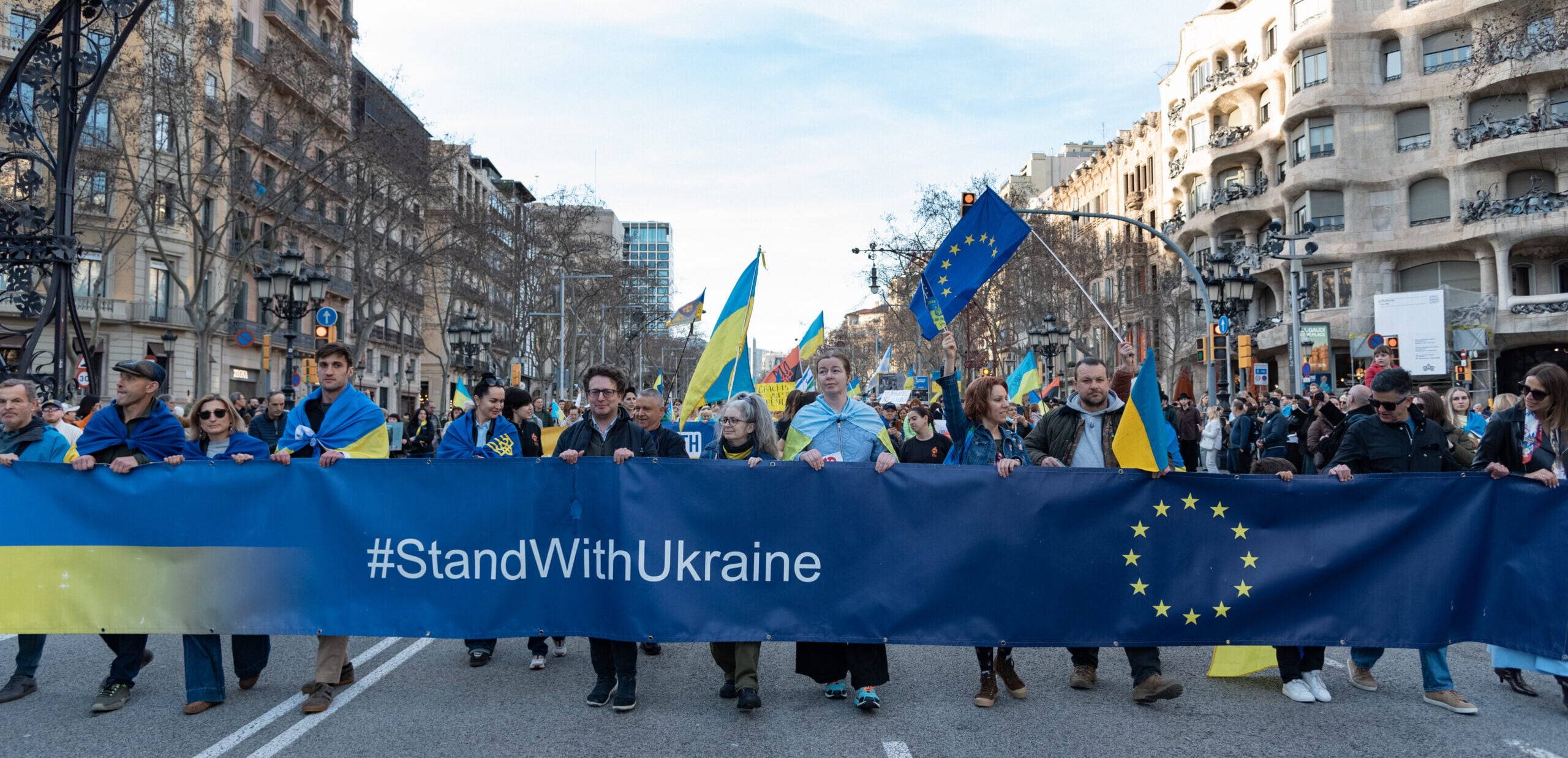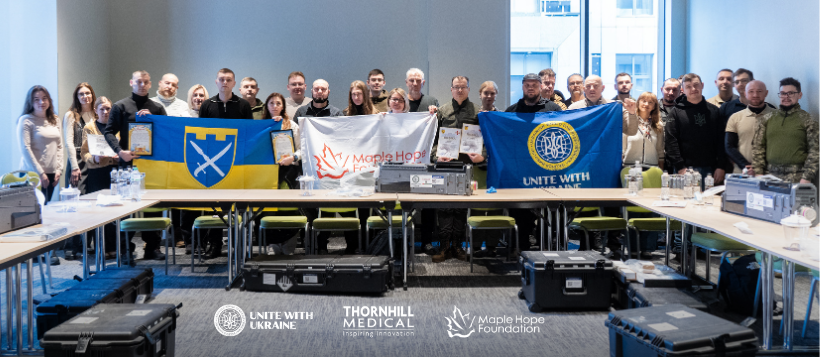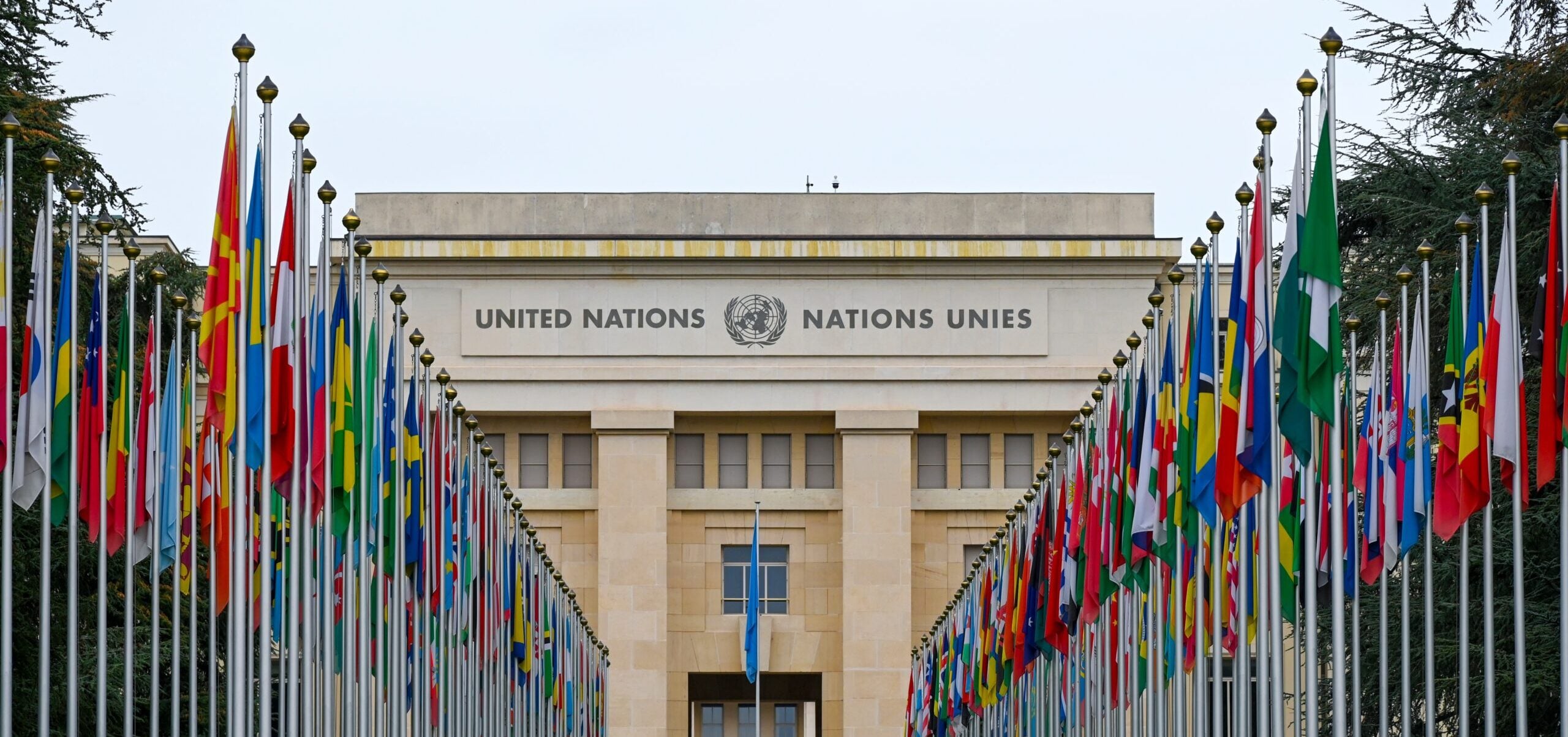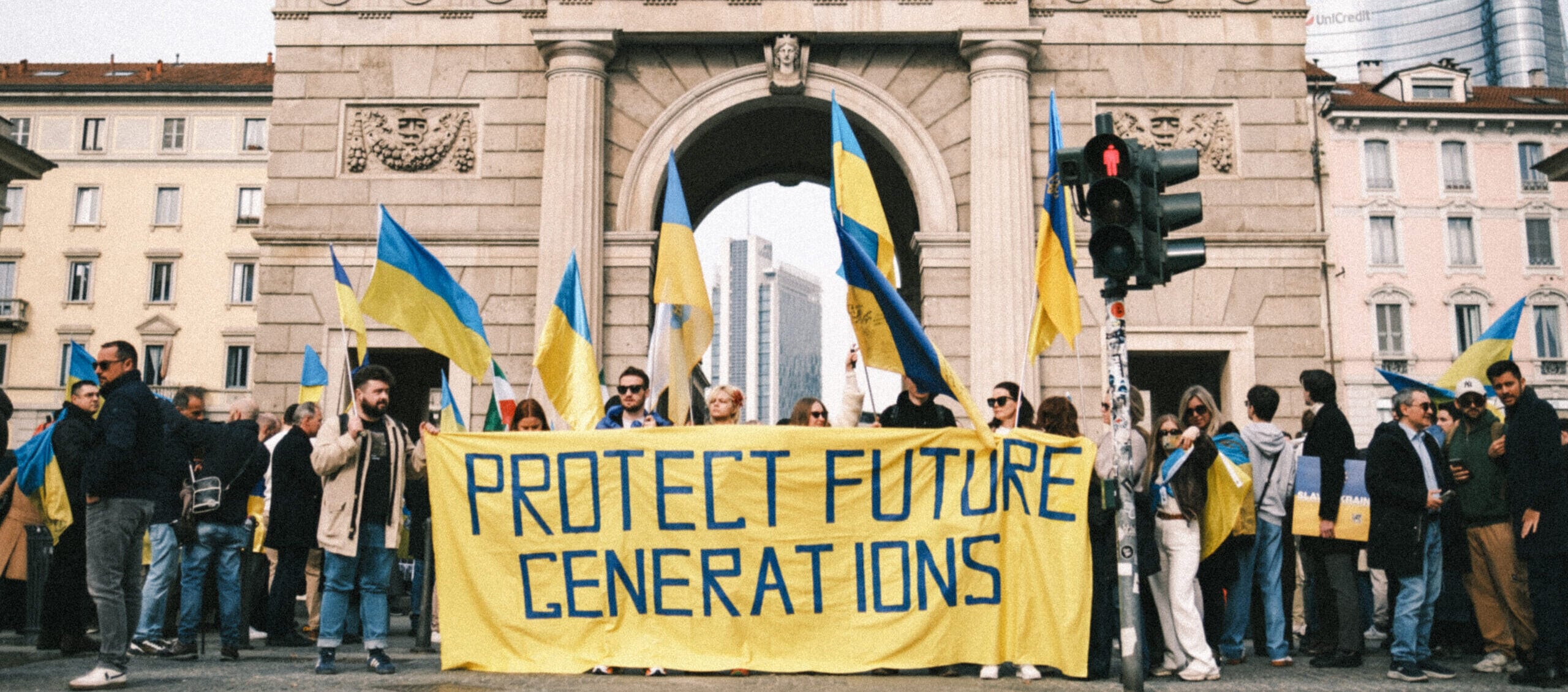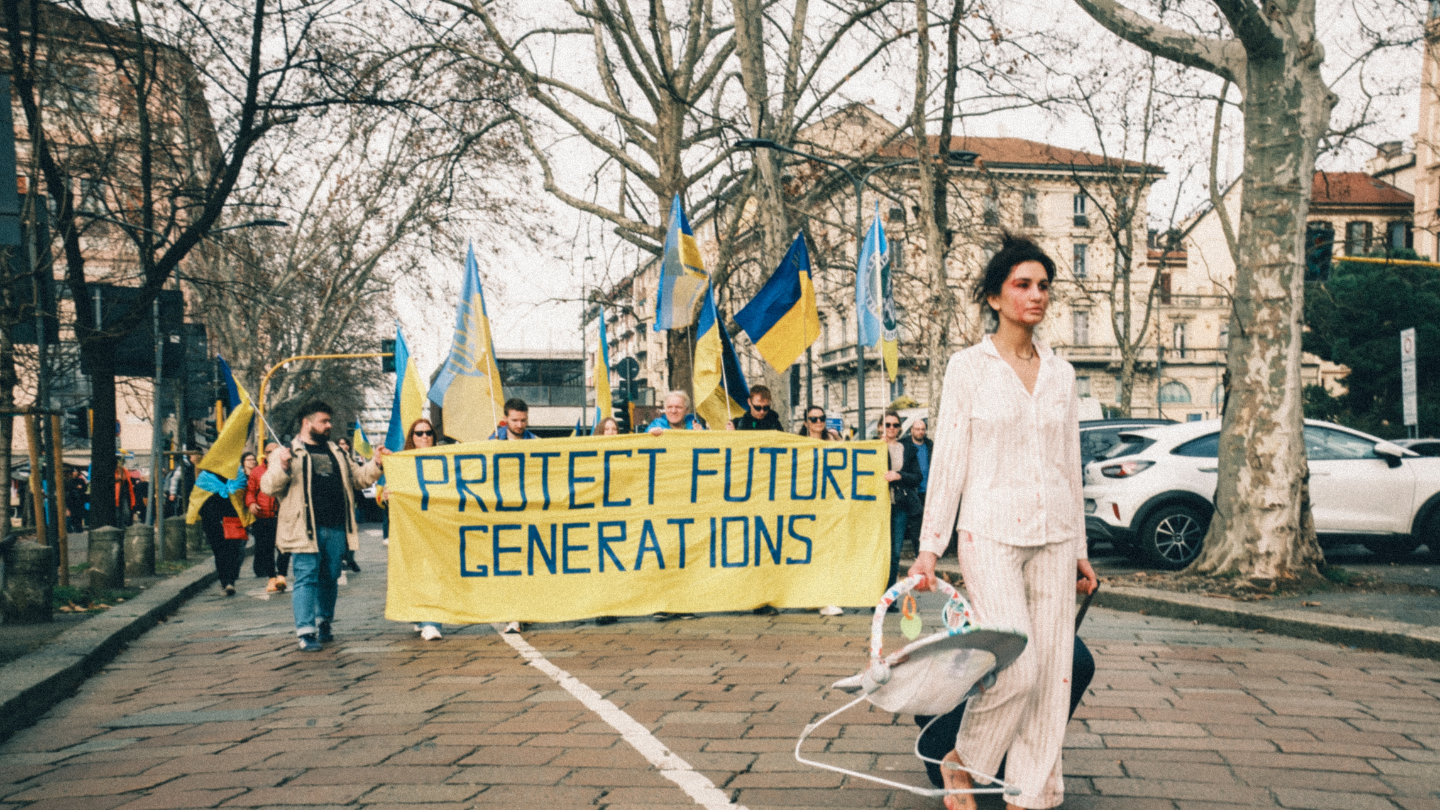
Source: the Association of Ukrainian Organizations in Germany (AUOG)
A critical essay on selective blindness, ideological comfort zones, and the inability to name perpetrators and victims amid Russia’s war of annihilation against Ukraine.
Foreword
As this text is being written, Russian missiles are hitting the western Ukrainian city of Ternopil, one of many targeted cities. Civilian buildings are burning, people are dying. There are no military targets, no strategic advantage, only terror directed at the civilian population. This pattern has repeated daily for more than three years.
Meanwhile, in Germany, initiatives continue to emerge that call for an “immediate ceasefire.” They appeal equally to both Kremlin ruler Vladimir Putin and Ukrainian President Volodymyr Zelenskyy, as if both are on the same moral plane. As if Ukraine could simply stop fighting, and everything would somehow resolve itself.
This essay seeks to open eyes and explain why such thinking so often fails.
Every Ukrainian feels this pain deeply: friends, relatives, and acquaintances are wounded, become refugees, are tortured or killed — and there seems to be no end. Nobody wants this war. Nobody desires suffering, death, or destruction. Yet there is no alternative to defending oneself.
Precisely because many well-meaning people in the West believe we should not “add fuel to the fire” and that “arms have never brought peace,” it must be said unequivocally:
If Ukraine had no weapons, there would be peace — a peace of the subjugated, the deported, the missing. Peace in a cemetery.
Peace and freedom are not natural states, gifts, or moral dividends of good intentions. They must, regrettably, be fought for and defended. Not with slogans, not with wishful thinking, but with resistance. With courage. Sometimes with heroic acts no one would choose, but which are necessary if a nation is not to be annihilated.
The German paradox: pacifism without contact with reality
The German peace movement has a long history, marked by sincere ideals and some achievements. Yet in the face of Russia’s aggressive war, it reveals a troubling inability to grasp reality. Some of its representatives cling to reflexes that no longer relate to the present. The result is a moral paradox: those who aim to champion humanity end up ignoring the victims and expressing understanding for the perpetrators.
But this is no longer just about the classic peace scene. The problem runs deeper: among well-meaning but poorly informed German citizens who perceive themselves as empathetic and morally sensitive, fundamental realities are ignored. This attitude shapes a significant portion of public debate, commentary, and private conversation. It arises not from malice but from a historically conditioned blindness.
The consequence: a collective loss of touch with reality among part of the population. Aggression is psychologized, criminals are relativized, victims are told what to do. Instead of understanding the war, it is squeezed into politically convenient frameworks — and distorted in the process.
This is not naïveté — it is dangerous. And it costs human lives.
Historical privilege as a cognitive prison
Germany has never had to defend its freedom on its own. This may sound blunt, but it is simply a fact: the Federal Republic gained peace, democracy, and security not through its own efforts, but as a result of an international order created and maintained by others. Deterrence, nuclear balance, the presence of the United States, and NATO structures were not the product of German pacifist policy — they were its prerequisites.
This historical privilege has become a mental trap. Those who have never personally experienced the necessity of defending themselves assume that peace is a natural state, and that violence is merely a misunderstanding that can be resolved with patience and good intentions. Comparisons with the GDR fail: a society oppressed by its own state has no experience of collective democratic self-defense against external aggression.
Germany lives in a self-constructed illusion: that peace simply comes if one thinks about it peacefully enough. An illusion made possible only because others fight and die for German security.
Yearning for moral purity: when ethics make you blind
Part of the peace movement is driven by a deep desire for moral untarnishedness. War is inherently wrong — therefore, anyone who fights must be in the wrong. This mindset is understandable, yet fatal. It abstracts away both the perpetrator and the victim, replacing analysis with a false equivalence.
This pattern is familiar: the aggressor and the defender are placed on the same moral footing. Calls for peace are addressed to both sides, effectively siding with the criminal. Violence is interpreted as symmetrical, even when it is clearly asymmetrical. This stance relieves those who adopt it. One can feel morally superior without acknowledging reality. Ideals replace perception: information that does not fit the worldview — deportations, mass graves, systematic torture, the destruction of Ukrainian identity — is ignored or relativized.
Cover: Shutterstock



